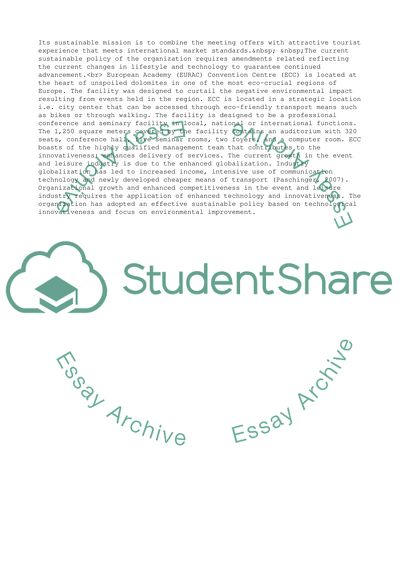Cite this document
(“Critical Assessment of Sustainability Policy of EURAC Convention Research Paper”, n.d.)
Critical Assessment of Sustainability Policy of EURAC Convention Research Paper. Retrieved from https://studentshare.org/management/1784367-critical-assessment-of-sustainability-policy-of-eurac-convention-centre
Critical Assessment of Sustainability Policy of EURAC Convention Research Paper. Retrieved from https://studentshare.org/management/1784367-critical-assessment-of-sustainability-policy-of-eurac-convention-centre
(Critical Assessment of Sustainability Policy of EURAC Convention Research Paper)
Critical Assessment of Sustainability Policy of EURAC Convention Research Paper. https://studentshare.org/management/1784367-critical-assessment-of-sustainability-policy-of-eurac-convention-centre.
Critical Assessment of Sustainability Policy of EURAC Convention Research Paper. https://studentshare.org/management/1784367-critical-assessment-of-sustainability-policy-of-eurac-convention-centre.
“Critical Assessment of Sustainability Policy of EURAC Convention Research Paper”, n.d. https://studentshare.org/management/1784367-critical-assessment-of-sustainability-policy-of-eurac-convention-centre.


